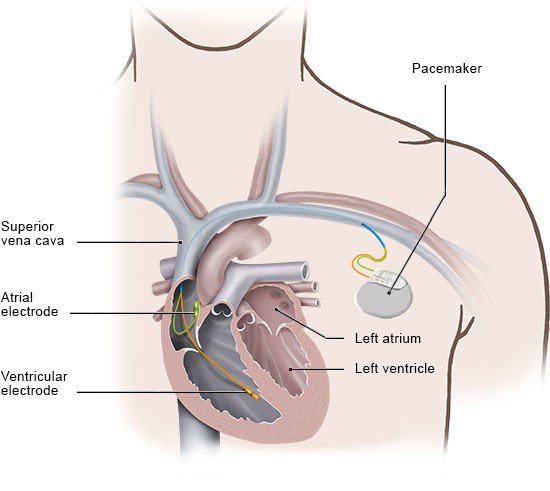How is AV block treated?

If AV block (also called heart block) causes your heart to beat so slowly that you have symptoms, you will usually need a pacemaker. This device makes your heart beat fast enough again.
In AV block (atrioventricular block), the electrical signals in the heart don’t travel normally from the upper chambers (atria) to the lower chambers (ventricles). If it's mild, the signals are only delayed and there are often no symptoms. In more severe cases, only some (or even no) signals reach the lower chambers. Then the heart beats very slowly or may even stop beating for some time. This typically causes symptoms like fainting, dizziness, shortness of breath, weakness and fatigue.

